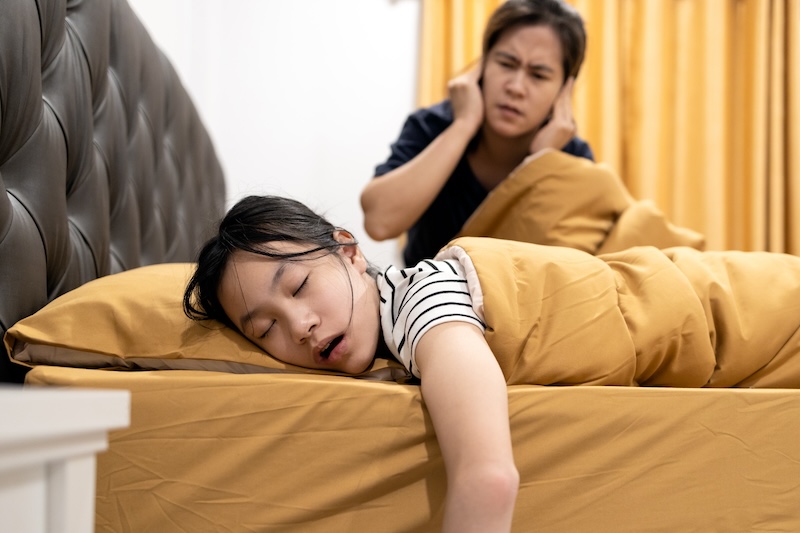When should I worry about my child’s snoring?

Snoring is extremely common among children. A 2004 study of its prevalence amongst preschool and primary school children in Singapore identified that 28% of children will snore for short episodes, with 6% snoring habitually—meaning for more than three nights a week regularly. Snoring is more common when a child has a cough or cold (upper respiratory tract infection). It is also more common in obese children and children with nasal allergies, eczema, and asthma.
As an ENT Specialist, we see many children each week with a history of snoring and try and identify those in whom snoring is severe enough to affect the child’s quality of sleep and oxygenation at night.
In general, snoring or “sleep-disordered breathing” (SDB) can be classified into four categories.
- Primary snoring – there is snoring but no increased effort in breathing
- Upper Airways Resistance – there is snoring and effort in breathing with arousals, but no airway obstruction or poor oxygenation
- Obstructive hypopnoea – there is noisy breathing with partial airway obstruction, causing a rise in carbon dioxide in the blood and low oxygen
- Obstructive apnoea – there is noisy breathing with prolonged partial or intermittent complete airway obstruction leading to low oxygen levels
It is important for clinicians to identify children who snore and may need specialist medical attention.
These are some of the features of a child’s snoring which are concerning:
| Night time symptoms | Day time symptoms |
| Gasping/snorting at night | Waking up unrefreshed |
| Breath holding | Morning headaches |
| Restless sleep with tossing/turning | Daytime sleepiness |
| Bedwetting | Hyperactivity/Attention Deficit |
| Mouth open and neck hyperextended | Behavioural issues |
| Night terrors | Academic deterioration |
| Excessive sweating |
Video recording your child’s sleep pattern and snoring is useful to clinicians. Sleep apnoea is often worse during rapid eye movement (REM) sleep, which occurs in the second half of the night. So if you choose to observe your child’s sleep pattern, this is best in the early hours of the morning.
If your child exhibits any of the features we have mentioned, do approach your GP, Paediatrician or ENT Specialist and have a thorough evaluation. Sleep-disordered breathing may lead to a variety of problems which we will cover in our next article.
Share this blog via:
